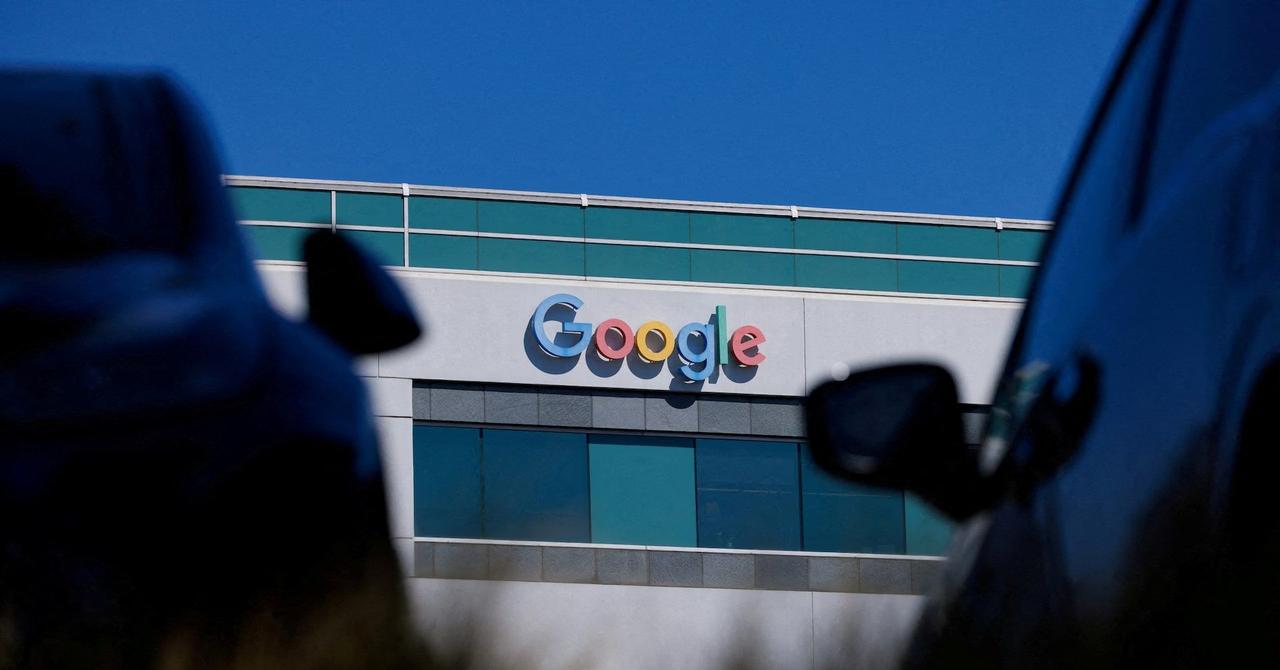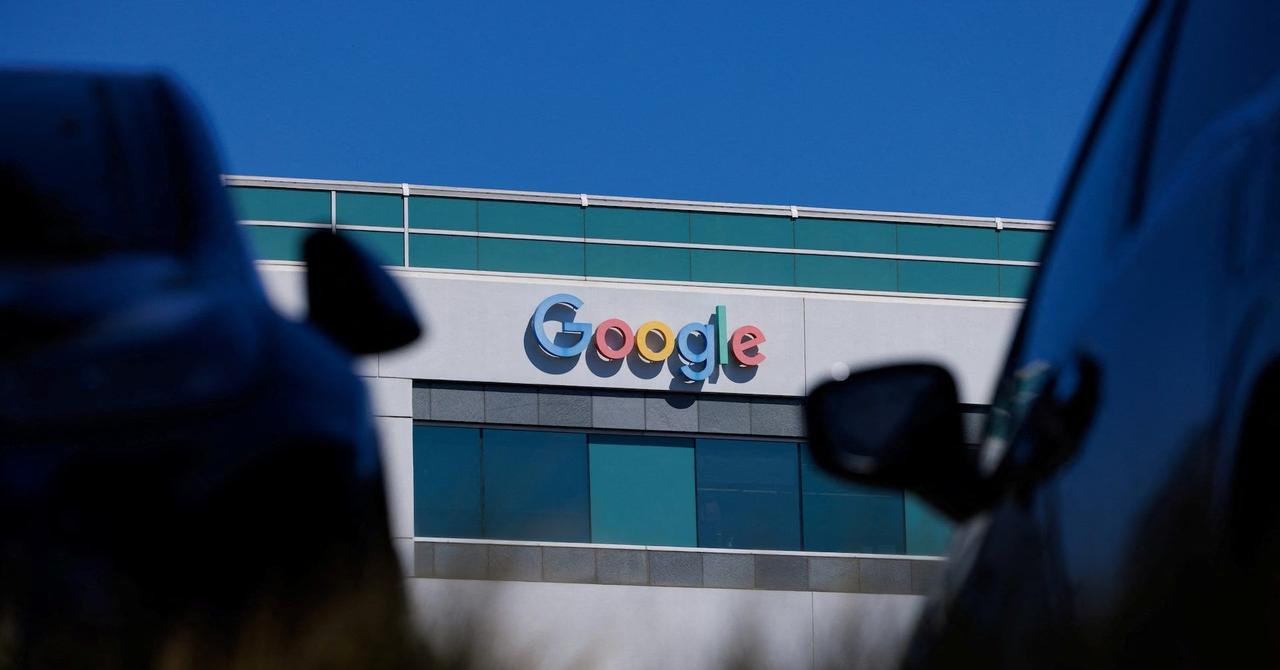Anthropic Challenges U.S. Government's Proposal to Restrict Google's AI Investments
3 Sources
3 Sources
[1]
Anthropic Tries to Halt Government's Plans for Google | PYMNTS.com
The AI developer went to court Friday (Feb. 14), calling for an end to a U.S. government proposal that would prevent Google from backing AI firms, Bloomberg News reported. That proposal is part of the government's planned remedy to fix Google's monopolization of the online search space. "A remedy that requires Google to terminate its relationship with Anthropic would harm both Anthropic and competition more generally," the company's filing said, per Bloomberg. Google, which has invested around $3 billion in Anthropic, lost its antitrust case last year when a federal judge ruled the company held an illegal online search and search ad monopoly. The U.S. Justice Department and states that brought the case have proposed sweeping changes to Google's business, including the sale of its Chrome browser, and a ban on the company investing in, purchasing, or working with other firms that deal in consumer search information, AI products included. Anthropic argues this arrangement would "provide an unjustified windfall to Anthropic's much larger competitors in the AI space -- including OpenAI, Meta, and ironically Google itself, which (through its DeepMind subsidiary) markets an AI language model, Gemini." As Bloomberg noted, the Justice Department is not the only federal regulator to raise concerns about massive big tech investments in AI. In a report last month, the Federal Trade Commission (FTC) said that tech companies like Google and Microsoft require that some of their investments into AI firms be spent on their own products and/or services, which risks giving these larger companies an unfair edge when it comes to chip development, data center construction and the training of AI models. In other AI news, PYMNTS last week examined Anthropic rival OpenAI's long-term future as the company continues to spend -- and lose -- billions. Experts interviewed by PYMNTS held wildly divergent views on the company's ultimate success or failure. Mithilesh Ramaswamy, an AI and security engineer at Microsoft -- OpenAI's largest investor -- was bullish about the company's chances. "I look at OpenAI's trajectory and I can't help but think of SpaceX," founded 23 years ago, Ramaswamy told PYMNTS. "They, too, burned through cash at an alarming rate, pushing the boundaries of what was thought possible, facing constant skepticism. "OpenAI seminally is building the infrastructure for a new kind of intelligence, and that's not cheap. Sure, the losses are eye-watering, but so were SpaceX's early rocket failures, but long term they will be successful," Ramaswamy added. Nathan Brunner, CEO of Boterview, said he is "very pessimistic" about OpenAI's future, saying that there was no "secret sauce" to the company's AI models, with open-source competitors like DeepSeek and Mistral closing in. In apps, Brunner doesn't think OpenAI is "well-positioned to win the product war," noting that competitors like Google, Microsoft and Meta all have vast networks of operating systems and social media platforms with which to distribute their AI offerings. "This simply looks like a losing battle for OpenAI," Brunner concluded.
[2]
Anthropic Says US Google Search Proposal Will Hurt AI Investment
Artificial intelligence developer Anthropic asked a federal court to nix a US government proposal that would block Alphabet Inc.'s Google from investing in artificial intelligence startups to remedy its illegal monopolization of the online search market. "A remedy that requires Google to terminate its relationship with Anthropic would harm both Anthropic and competition more generally," the AI startup said in a court filing Friday. Google has invested about $3 billion in Anthropic, while Amazon.com Inc. is also a backer.
[3]
Jeff Bezos-Backed Anthropic Fights US Move To Block Google's Search Proposal - Alphabet (NASDAQ:GOOG), Alphabet (NASDAQ:GOOGL)
Jeff Bezos-Backed Anthropic, an artificial intelligence (AI) developer, has filed a plea with a federal court to dismiss a U.S. government proposal that would prevent Alphabet Inc.'s GOOGL GOOG Google from investing in AI startups. The proposal is intended to address Google's alleged monopolization of the online search market. What Happened: Anthropic, in a court filing on Friday, argued that the proposed remedy would negatively impact both the company and competition in general. The proposal, put forth by the Justice Department and a coalition of states, includes significant changes to Google's operations, such as the forced sale of its Chrome web browser. See Also: Elon Musk Told The U.N. If They Could Show A Plan For Ending World Hunger He'd Donate $6 Billion - 'I Will Sell Tesla Stock Right Now And Do It' The proposal aims to block Google from purchasing, investing in, or partnering with companies that manage consumer search data, including those developing AI technologies. Anthropic, which has received around $3 billion in funding from Google, argued in its court filing that the proposed remedy would harm both the company and overall market competition. The AI startup also claimed that a forced sale would unfairly benefit its larger competitors, including OpenAI and Meta Platforms Inc META. The U.S. Federal Trade Commission (FTC) has raised concerns about major tech firms like Google and Microsoft Corp. MSFT investing in AI startups, warning that such deals could lead to data consolidation in key areas such as chip development, model training, and data center infrastructure. Why It Matters: The U.S. government's proposal is a part of the ongoing efforts to address Google's alleged monopolization of the online search and search ad markets. After the DOJ announced remedies in its antitrust lawsuit against Google, the November decision triggered a significant drop in Alphabet's market value. Alphabet's business model is deeply interconnected, with its services benefiting from strong synergies. In Q3 2024, the company's "Search & Other" segment brought in $49.4 billion, making up 56% of its total quarterly revenue. These proposed remedies have sparked discussions within the tech industry, with some suggesting that AI startups should consider acquiring Google Chrome, while others, like OpenAI, have explored the idea of developing their own web browsers to challenge Google's dominance. Read Next: Palo Alto Analysts Optimistic On Revenue Growth, Expanding Market Share Disclaimer: This content was partially produced with the help of Benzinga Neuro and was reviewed and published by Benzinga editors. Photo courtesy: Shutterstock GOOGAlphabet Inc$186.97-0.49%Overview Rating:Good62.5%Technicals Analysis1000100Financials Analysis400100WatchlistOverviewGOOGLAlphabet Inc$185.24-0.48%METAMeta Platforms Inc$737.481.22%MSFTMicrosoft Corp$408.10-0.59%Market News and Data brought to you by Benzinga APIs
Share
Share
Copy Link
AI developer Anthropic has filed a court plea against a U.S. government proposal that would prevent Google from investing in AI startups, arguing it would harm competition and benefit larger rivals.

Anthropic's Legal Challenge to U.S. Government Proposal
Artificial intelligence developer Anthropic has taken legal action against a U.S. government proposal aimed at preventing Google from investing in AI startups. The company filed a plea in federal court on Friday, February 14, 2025, arguing that the proposed remedy would harm both Anthropic and overall market competition
1
2
.Background of the Antitrust Case
The proposal is part of the government's planned remedy to address Google's alleged monopolization of the online search market. In a previous antitrust case, a federal judge ruled that Google held an illegal monopoly in online search and search advertising
1
. As a response, the U.S. Justice Department and several states have proposed sweeping changes to Google's business practices.Proposed Remedies and Their Impact
The government's proposed remedies include:
- Forcing Google to sell its Chrome browser
- Banning Google from investing in, purchasing, or collaborating with firms dealing in consumer search information, including AI products
1
Anthropic, which has received approximately $3 billion in investment from Google, argues that these measures would provide "an unjustified windfall to Anthropic's much larger competitors in the AI space -- including OpenAI, Meta, and ironically Google itself"
1
3
.Broader Concerns in the Tech Industry
The legal challenge highlights broader concerns within the tech industry about investments in AI startups. The Federal Trade Commission (FTC) has raised alarms about major tech companies like Google and Microsoft requiring some of their investments in AI firms to be spent on their own products or services
1
. This practice, according to the FTC, risks giving larger companies an unfair advantage in areas such as chip development, data center construction, and AI model training.Related Stories
Implications for the AI Industry
Anthropic's court filing emphasizes the potential negative consequences of the proposed remedy on the AI industry:
- Harm to competition: The company argues that forcing Google to terminate its relationship with Anthropic would harm both the startup and overall competition in the AI sector
2
. - Benefit to larger competitors: Anthropic claims that the proposal would unfairly benefit its larger rivals, including OpenAI and Meta Platforms Inc
3
. - Impact on innovation: The legal challenge raises questions about the balance between regulating big tech companies and fostering innovation in the rapidly evolving AI landscape.
The Broader Context of Tech Regulation
This case is part of a larger trend of increased scrutiny and regulation of major tech companies. The U.S. government's efforts to address Google's market dominance have already had significant impacts, with a previous DOJ announcement of remedies causing a drop in Alphabet's market value
3
. The outcome of this legal challenge could have far-reaching implications for the future of AI development, tech industry investments, and the competitive landscape of the AI market.References
Summarized by
Navi
Related Stories
Anthropic Warns DOJ's Proposal in Google Antitrust Case Could Hinder AI Investment
10 May 2025•Policy and Regulation

US Justice Department Seeks to Unwind Google's $2 Billion Anthropic Deal in Antitrust Push
22 Nov 2024•Policy and Regulation

Google's $3 Billion Investment in Anthropic Reveals Deep Ties in AI Race
12 Mar 2025•Business and Economy

Recent Highlights
1
Google Gemini 3.1 Pro doubles reasoning score, beats rivals in key AI benchmarks
Technology

2
Meta strikes up to $100 billion AI chips deal with AMD, could acquire 10% stake in chipmaker
Technology

3
Pentagon threatens Anthropic with supply chain risk label over AI safeguards for military use
Policy and Regulation





